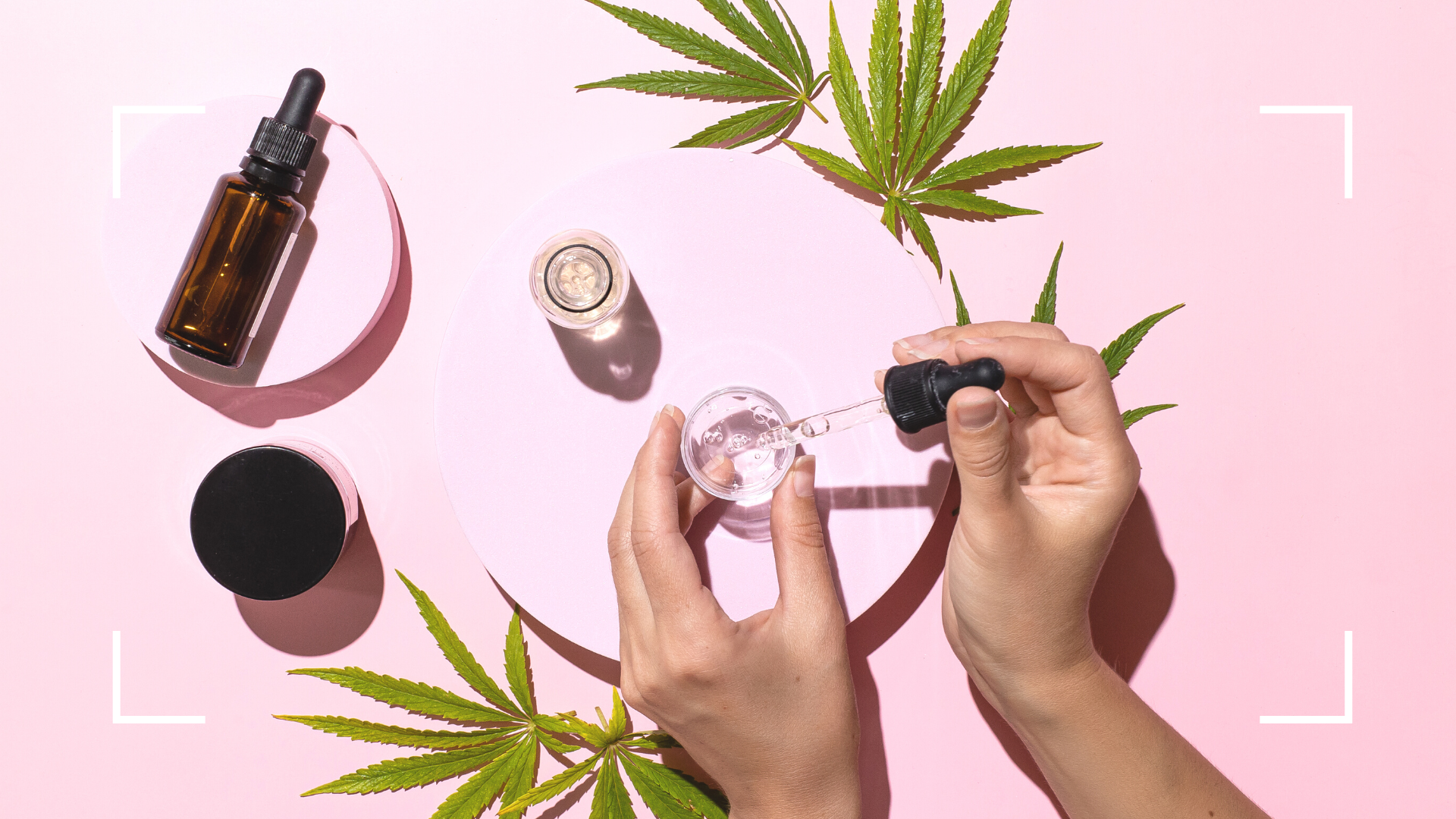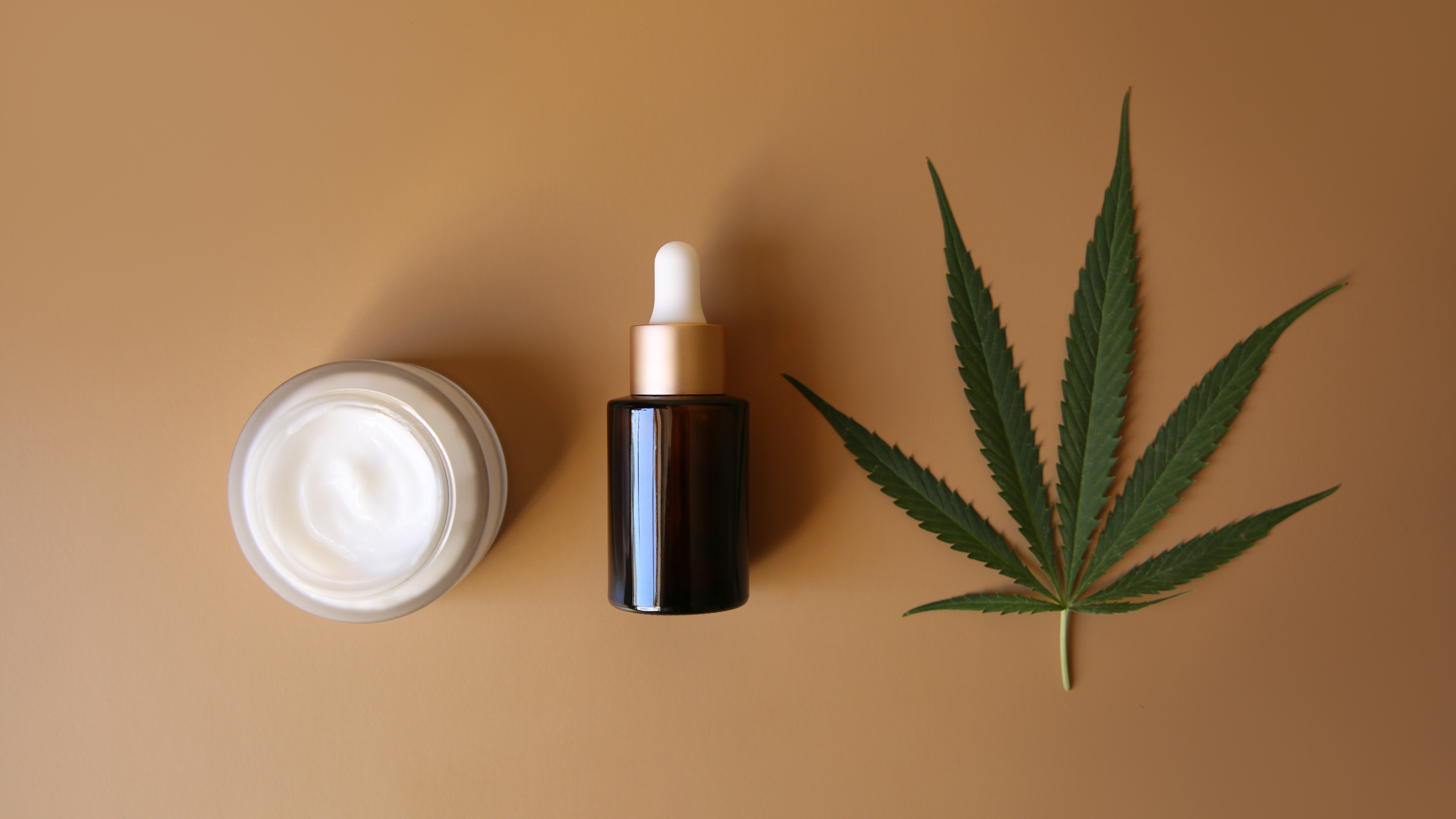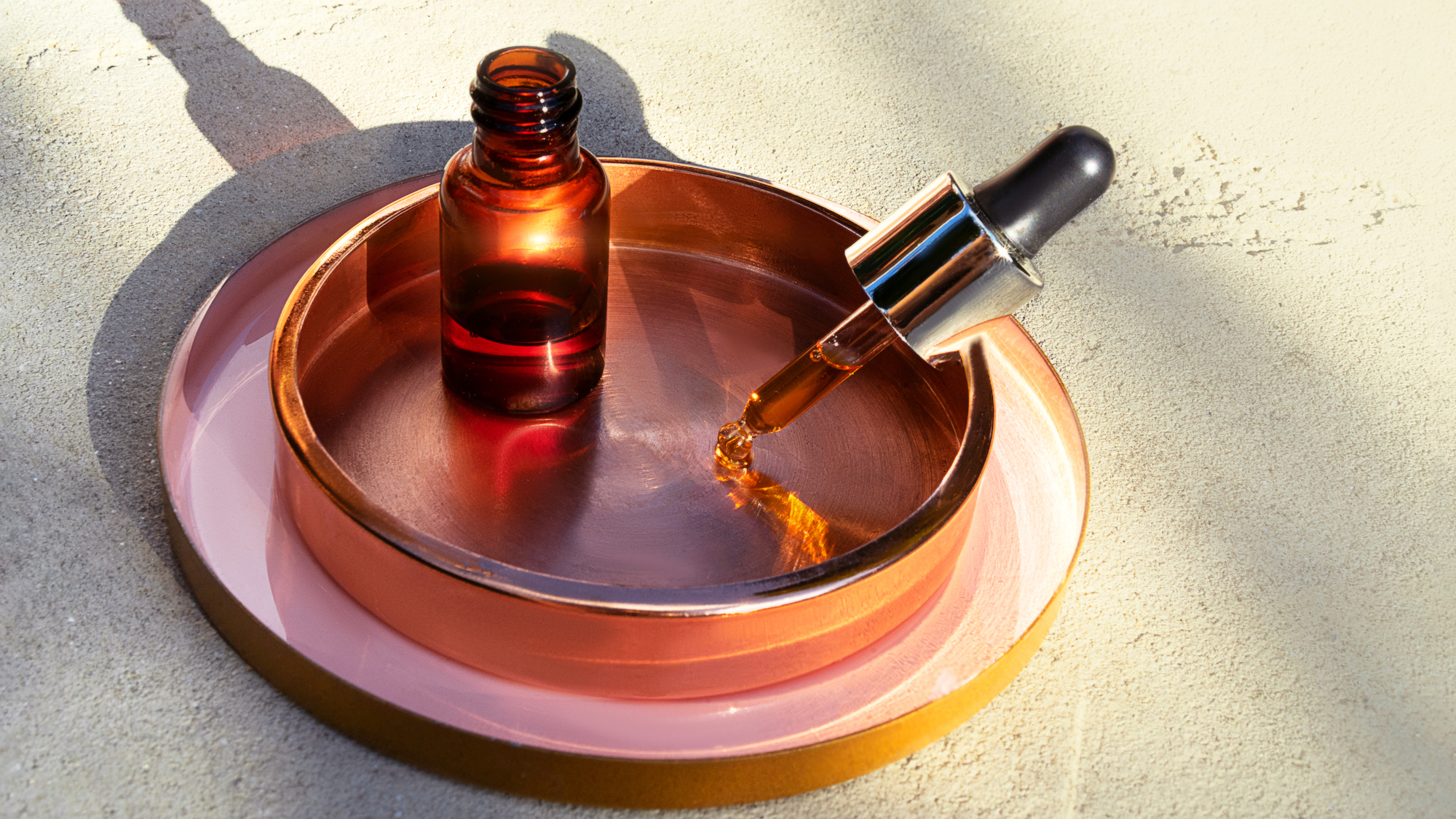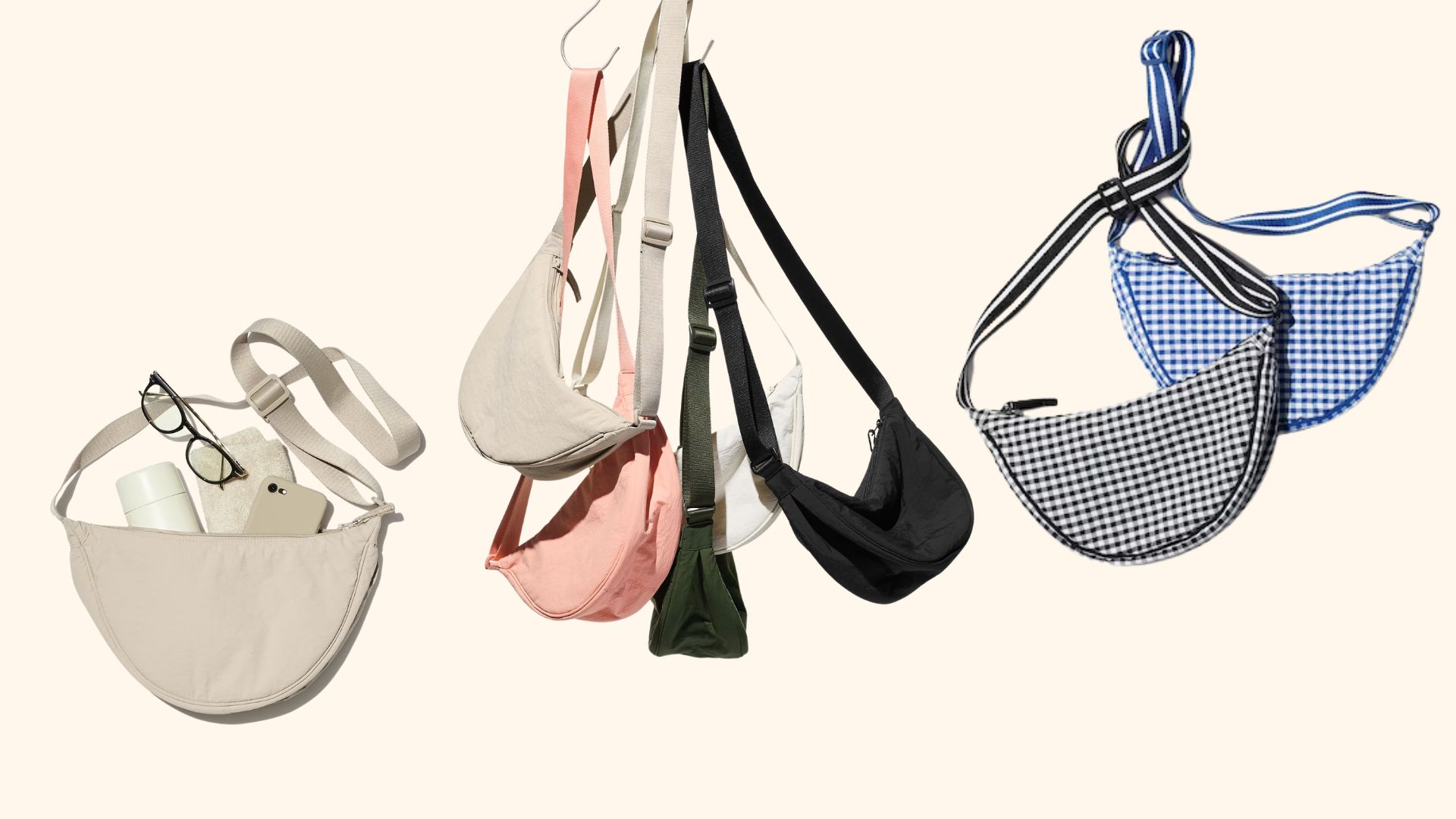The benefits of CBD for women's health—including period pain relief and better sex
With these possible benefits of CBD for women, you may want to place it higher up in your self-care routine


The purported benefits of CBD have become pretty hard to ignore in recent years. There have been A-list stars—like Kim Kardashian and Jennifer Aniston—extolling its stress-relieving virtues, as well as a stream of new studies into how it may help ever-increasing aspects of health and wellness. As such, the market for products containing the prized ingredient is projected to be worth $16bn in the US by 2025.
While CBD for sleep and CBD for relaxation are often linked within advertising campaigns, there are plenty more benefits of CBD. "We’re already starting to see it used increasingly in healthcare,” says Dr Dani Gordon, a medical doctor, integrative medicine physician, and author of The CBD Bible. “It’s growing all of the time.” Indeed, one of the latest offerings to hit shelves—tampons infused with CBD by the cool menstrual care brand Daye—points to where this flourishing industry is headed next—helping to ease the symptoms of women's health conditions like period pain, endometriosis, and menopause.
So how exactly could CBD help your mental and physical wellbeing, and should it become a staple part of your own bedtime routine? We take a look at what exactly it is (spoiler: this stuff won’t get you high), the science-based ways it can make you feel better, and how best to use it effectively. Now, sit back and relax...
What is CBD, and how does it work?
CBD, or cannabidiol, derives from the cannabis sativa plant—also known as marijuana or hemp—which was first used medicinally in Central Asia around 750 BC. While the chemical has become rather trendy in recent years, it lived for a long time under the spotlight of its sibling, THC—tetrahydrocannabinol—a psychoactive ingredient responsible for that well-known "high". As you'll know, cannabis comes with varying levels of legality around the world. In the US, federal law deems that CBD can contain a maximum of 0.3% of THC—although individual states, of course, have their own rules. Meanwhile, in the UK the limit is 0.2%.
This means that you can happily use CBD as a daily health supplement—and doing so may have a powerful effect. "It acts on the endocannabinoid system," explains Dr Dmitry Loktionov, a gynecologist and founder of sexual wellness brand Quanna. "Endocannabinoids are chemicals produced by the body, and along with cannabinoids from CBD they activate cannabinoid receptors located throughout the body, which are linked to various physiological processes such as pleasure, pain, sleep, appetite, mood, memory, fertility, and pregnancy.”
In order to help you harness these benefits, there are now a wide variety of ways to take it. "CBD oils are among the most popular form, where it is applied under the tongue before swallowing, and it can likewise be ingested orally via gummies or jelly tablets,” explains Dr Loktionov. "There is also something called CBD extract—a pure form of CBD, that is best for more experienced users—which is massaged into the cheek or gum." He notes that there has been a rise in CBD topicals applied directly to the skin or cosmetics (yep, CBD mascara is a thing), and there's a burgeoning category of intimate health products, like massage oils or lube (talking of which, don't forget to check out our best lube guide).
What are the benefits of CBD?
Research has shown that the benefits of CBD can include easing the symptoms of:
Sign up for the woman&home newsletter
Sign up to our free daily email for the latest royal and entertainment news, interesting opinion, expert advice on styling and beauty trends, and no-nonsense guides to the health and wellness questions you want answered.
- Periods and endometriosis
- Perimenopause and menopause
- Anxiety and depression
- Sleep and sex
- Chronic pain
It's worth noting that the scientific explorations into CBD are very much in the early stages. “While it is being hailed as the new miracle 'cure-all', the research isn’t yet clear about its benefits,” says menopause and hormone expert Claire Snowdon-Darling, who is head of The College of Functional Wellness and co-founder of kinesiology clinic Balanced Wellness. But that doesn't mean that, as part of a healthy lifestyle, it can't play a useful part. "Many women have reported relief from a number of symptoms including PMS and hormone issues, anxiety and depression, insomnia, hair, and sensitive skin issues, and digestive pain,” she adds.
But, back to research, the future looks bright. "CBD has shown promise as a treatment option for symptoms including stress, anxiety, and insomnia," explains Dr Mark Ware, the chief medical officer at Canopy Growth and a former associate professor in family medicine and anesthesia at McGill University. "It has also been found to have different therapeutic properties, including as an anti-inflammatory and pain reduction." What's more, there are positive signs it could help certain medical conditions. The World Health Organisation has stated that the use of CBD for epilepsy shows promise, and last year the United States Food and Drug Administration approved a purified CBD extract, called Epidiolex, to treat rare seizure disorders in patients.
Looking at CBD for female health specifically, while there are not yet any published studies, there is much hope given the evidence of its anxiety-relieving, pain-reducing and anti-inflammatory effects. "Research in this area has just begun to scratch the surface in understanding the complexities of the cannabis plant and highlights the vast potential for broader applications in the future," notes Dr Ware. But that it could be beneficial makes sense. “We have cannabinoid receptors in our uterus and throughout the female reproductive tract, and we also have them in the brain area that deals with the stress response and hormone control—the hypothalamus," explains Dr Gordon. "This part of the brain talks to our adrenal glands, thyroid, and ovaries to help regulate hormone balance, which directly affects our symptoms. As such, CBD can help modulate the stress response via this system and is also an anti-inflammatory.”
1. Periods and endometriosis
There are indications that CBD can ease pelvic pain, and therefore may help to soothe periods and endometriosis flare-ups. Welcome news to those of you who have had work, study, or—simply—life impacted by spending days clutching a hot water bottle and popping ibuprofen to little avail. "In the case of menstrual cramps, pain is often caused by the inflammation of the uterine lining at certain points during the menstrual cycle," explains Dr Ware. "CBD specifically has properties which may help to regulate this inflammation and relieve pain." While there has been no study specifically on taking it for period pain, one is currently in the works, and an existing body of research points to what the results might be. A study published last month found that cannabis “appears to be effective" for pelvic pain, as well as gastrointestinal issues and mood. Meanwhile, previous research indicated that cannabinoids were promising solutions to pain and inflammation, while a review suggested that CBD was a "modestly effective” pain reliever.
But how exactly can it be used to help around your time of the month? “Start taking CBD oil a week before your period is due to begin," suggests Kemmy Gichaba, an osteopath and founder of wellness brand Holistic Impact. "Then, on the day it starts, mix a couple of drops with a generous teaspoon of coconut oil or shea butter and begin to massage in circular motions on the abdomen working your way in a ‘V’ shape downwards."
In addition to PMS, there is also preliminary evidence that CBD could help specifically help endometriosis. The condition—which in addition to pelvic pain causes long periods, abdominal cramps, and discomfort during sex—affects 11% of women in the US and 10% in the UK. A study looking at how sufferers best managed their symptoms found that those who used cannabis reported the “highest self-rated effectiveness”, and last year, research suggested that as well as helping to regulate symptoms, it also appeared to limit the development of endometrial cysts.
For Laura Walton, an endometriosis sufferer and co-founder of CBD brand MOI + ME, CBD has been a gamechanger. "Having suffered from endometriosis for over 20 years and using several medications to help with the pain, using CBD oils and topicals like balms that can be applied to the direct area of pain has massively helped me manage my pain. I like the fact it’s a natural product and although certainly not a cure for endometriosis, it does help me personally," she told us.
2. Perimenopause and menopause

The stages of menopause are something all women will go through at some point in their lives. While perimenopause usually begins in your mid-40s, the average age of menopause is 51. And CBD is becoming increasingly discussed as a treatment for symptoms—which include hot flashes, difficulty sleeping and anxiety. Data from Europe's largest CBD and alternative health marketplace Alphagreen.io found that 15% of consumers are purchasing CBD for precisely this reason.
Dr Gordon explains that CBD products and medical cannabis—which is legal in parts of the US, and in the UK if prescribed by specialist doctors on a case-by-case basis—can be "incredible tools” for symptoms such as sleep disturbance, as well as helping with mood and anxiety. She explained: "I often combine cannabinoids with body identical hormone replacement therapy (HRT)—but even if someone cannot take HRT, that is when CBD and medical cannabis can be a great substitute, to dramatically improve quality of life.”
Now, the distinction between CBD and medical cannabis is an important one, because some experts believe that there isn't yet evidence to support that the former can alone help fully-fledged menopause symptoms. “CBD appears to be a popular alternative choice for women undergoing menopause, but there is no scientific evidence that supports its use,” notes Dr Ayanthi Gunasekera, specialist registrar in gynecology at London Gynaecology. “CBD suppositories or lubrication may help with symptoms like vaginal dryness, but it is unlikely it will help with hot flashes.” Something to bear in mind.
3. Anxiety and depression
However, mental health is one area where CBD has long been championed. "It is a chemical very similar to the neurotransmitter serotonin, which means that when CBD passes the ‘blood-brain barrier’ by crossing from the blood system into the brain, it creates the same effect," says Dr Loktionov, of its feel-good benefits. “This means when the body is experiencing a stress response, taking CBD can fool the brain into reacting like there is more serotonin—thereby relaxing the body.”
The calming effects of CBD have been well researched. In one study, 79.2% of the participants reported their anxiety levels had decreased while taking it, and other research found that those who took 300 milligrams of CBD experienced significantly reduced anxiety during a public speaking test. "In particular, studies have shown it to reduce short-term or ‘acute’ anxiety," notes Dr Loktionov.
However, CBD shouldn't be treated as a miracle solution—just yet. "There still needs to be more research on things like optimal doses, dosing strategy, and whether it should be used to treat acute or chronic stress, before it can be approved as an official treatment for anxiety," explains Dr Loktionov. Indeed, while research in mice suggested CBD had a similar effect to the antidepressant imipramine, human trials are needed to confirm this. Additionally, another study found that CBD had little impact on participants' emotional reactions to unpleasant images or words.
4. Sleep and sex
If you have ever googled how much sleep do I need you'll know that getting your eight hours is important. "Consistently having trouble falling asleep, or experiencing poor quality sleep, can lead to long-term health problems including obesity, anxiety, depression, cardiovascular disease and diabetes, as well as low energy and cognitive issues like brain fog,” explains Gichaba.
This is where CBD could come in—there's evidence it can help with shut-eye due to its relaxing effects. A study discovered that after just one month of taking it, 66.7% of participants reported having better sleep, and further research found that those who took 160mg reported sleeping significantly longer. Dr Loktionov notes: "Although more research needs to be done before it can be approved as an official treatment for sleep disorders such as insomnia, studies like these indicate that there is scientific evidence that it can help.”
How to use CBD for sleep? "The best product to use in this instance is a CBD oil which is fast-absorbing, and provides a calming effect but without the grogginess," explains Gichaba. "Place the drops under the tongue for 30 seconds to one minute before swallowing."
And for that other kind of bedroom time—if you've got sexual anxiety, then CBD may help you get in the mood. "The female reproductive system has a cannabinoid receptor called TRPA1, found in the clitoris,” explains Dr Loktionov. “When activated this receptor causes an increase in nitric oxide, which in turn causes an increase in blood flow and enhanced sensitivity." For other ways to boost your sex life? See our best vibrator guide.

5. Chronic pain
It is estimated that chronic pain affects 50 million people in the US, and 28 million in the UK. Once again, CBD may be coming to the rescue. A review found that cannabis-based medicines could increase relief.
More specifically, it could help those with rheumatoid arthritis—a condition predominantly affecting women, that causes pain, stiffness or tenderness in more than one joint. A study found that a CBD-based medication provided sufferers with significant improvements to their quality of sleep as well as pain while moving and resting. The drug, called Sativex, was approved in the UK in 2010, and it is currently being trialed in the US.
How does it work for long-term health issues? "CBD has a direct effect on the endocannabinoid system in the brain, which enhances the effects of other chemicals —such as serotonin and anandamide—to reduce pain perception," explains Gichaba.
How should you take CBD, and at what dose?
If you want to try CBD for any of the above reasons, there are a few things you should know. Firstly, some methods will have a faster effect than others. “Using CBD oil either with a tincture or mist sprays directly under the tongue means that it will be absorbed directly into the bloodstream,” says Laura Walton, an endometriosis sufferer and co-founder of CBD brand MOI + ME. “Capsules and gummies are absorbed through the stomach, while topical creams and lotions are absorbed through the skin directly where they have been applied.” So, opt for what works best for you.
Similarly, how much you need is very individual. “When starting with CBD, finding your optimal amount takes a little experimenting,” explains Gichaba. “The typical dose is between 25-70mg of CBD per day, with 70mg being the maximum recommended in the UK. That said, there is no ‘official serving size’ and your own ideal dosage will be based on a variety of factors including your weight, metabolism, the type of product you’re using." She advises working your way up gradually and having patience since it can take two to three weeks of consistent use to see the effects.
Anything else? “As with anything CBD use carries some risks,” notes Walton. “Though it's often well-tolerated, with few side effects, diarrhea, appetite changes, weight gain/loss, and fatigue have been reported in some studies. It may also interact with other medications you're taking, which is why people should always speak to a doctor before starting it.”

Lauren is a freelance writer and editor with a decade of print and digital journalism experience. While she specialises in covering health and wellness topics - ranging from nutrition and fitness, to women’s health conditions and mental wellbeing - she has written across a diverse range of lifestyle topics, including fashion, beauty, interiors and travel.
In addition to writing for Woman & Home and sister title Homes & Gardens, Lauren's work has also been published by Women’s Health, The Times, Daily Telegraph, Elle, Cosmopolitan, The Guardian, Marie Claire, Body + Soul, Stylist, Glamour, Grazia, Red, Dazed Digital, Yahoo Life, The Sun’s Fabulous, Get The Gloss and Hello! among others.
-
 What self-tan does Kate Middleton use to achieve her natural-looking golden glow?
What self-tan does Kate Middleton use to achieve her natural-looking golden glow?The Princess of Wales is never seen without an effortlessly radiant, golden complexion
By Sennen Prickett Published
-
 Uniqlo's viral crossbody bag is now under £13 – here's why I'm snapping one up before summer begins
Uniqlo's viral crossbody bag is now under £13 – here's why I'm snapping one up before summer beginsSleek, functional, and surprisingly spacious – this bag is the ultimate travel companion
By Molly Smith Published